Story
Progress at UNOC but major challenges remain: highlights from Nice
03 July 2025
The 2025 United Nations Ocean Conference (UNOC) saw 55 Heads of State and Governments along with 15,000 participants from science, business and civil society come together in Nice with renewed urgency to protect our Ocean. We share key highlights – and explore the challenges that still lie ahead.
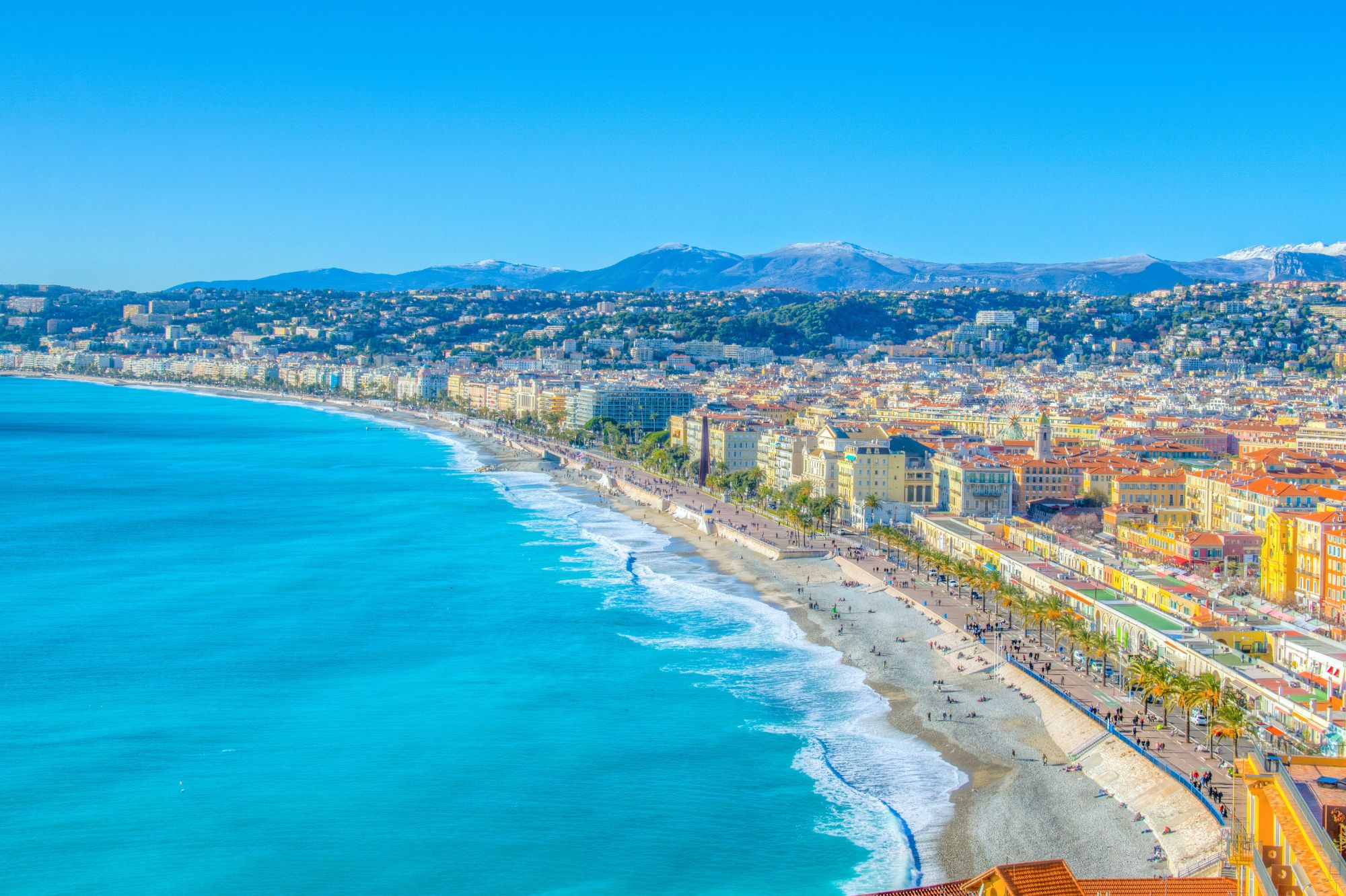
Building on our participation in the previous UNOCs (New York, 2017 and Lisbon,2022), Plymouth Marine Laboratory (PML) had a strong presence at the third UNOC held in Nice, France, from June 8th– 13th.
PML experts contributed to and led multiple sessions across the conference’s different zones, bringing our science and policy expertise to bear on critical ocean issues including Ocean Acidification, Climate Change, Deep Sea Biodiversity, the High Seas Treaty and Sustainable Ocean Planning.
The Conference itself resulted in several key areas of progress, including:
- Increased momentum for the High Seas Treaty (BBNJ): there were 19 new ratifications deposited by countries during UNOC, as well as multiple commitments to ratify soon – a vital step toward protecting marine biological diversity beyond national jurisdictions. More than 50 countries have now committed to the Treaty, which requires the ratification of 60 countries to come into force. More >>
- New and bigger Marine Protected Areas: French Polynesia pledged to create the world’s largest marine protected area, encompassing its entire exclusive economic zone – about five million square kilometers. Spain announced five new marine protected areas – helping Spain to reach its goal of protecting 30% of its marine waters by 2030, and the Australian government declared that almost a third of its oceans will be ‘highly protected’ in the next five years.
- Renewed International Commitments to End Pollution: 96 countries launched the “Nice Wake Up Call For An Ambitious Plastics Treaty” with signatories reaffirming their “common ambition to end plastic pollution to protect human health and the environment from its adverse effects, based on a comprehensive approach that addresses the full lifecycle of plastics”. The High Ambition Coalition for a Quiet Ocean, co-led by Canada and Panama, was launched calling for international cooperation to address the growing threat of ocean noise pollution.
- Funding for the future, especially for vulnerable coastal and island nations: Significant financial commitments were announced during UNOC as well as at the Blue Economy and Finance Forum (BEFF,7-8 June), a special event of the UNOC. The BEFF saw new pledges of €4.7 billion from philanthropists and private investors and €4 billion from public financial institutions totalling €8.7 billion by 2030 (€1 billion of this has already been deployed or is investment-ready in 2025). The event also highlighted over $25 billion in already identified investments in “concrete ocean transition projects across diverse sectors”. As part of the UNOC voluntary Commitments the European Commission, as part of its Ocean Pact, announced an investment of €1 billion to support ocean conservation, science, and sustainable fishing, New Zealand committed $52 million to strengthen ocean governance in the Pacific and a collective of United Nations agencies and global partners launched a co-design process for One Ocean Finance – a bold new effort to unlock billions in new financing from ocean-dependent industries and blue economy sectors.
PML’s Head of the International Office Professor Matt Frost, who is also Chair of the UK National Decade Committee and the World Association of Marine Stations, said:
“While more radical action is still required given the urgency of the challenges facing the Ocean, UNOC3 delivered increased momentum with 19 new BBNJ ratifications, record-breaking attendance from Heads of State, and major investment commitments. There were wins in the adoption of a political Declaration and numerous voluntary commitments as well as a commitment from a range of sectors at the BEFF to provide €8.7 billion by 2030 for investment in a sustainable blue economy.”
Despite UNOC 2025’s achievements, many commentators have highlighted the importance of ensuring pledges are rapidly and effectively translated into implementation on the ground. Investors highlighted the need for clearer governance frameworks and better ocean data to encourage greater private sector participation.
The push for a deep-sea mining moratorium also remains uncertain despite support from 37 countries, with some nations implementing only limited bottom trawling restrictions rather than full bans (a concern echoed in a recent expert paper co-authored by PML Honorary Fellow Torsten Thiele, urging the International Seabed Authority to declare a moratorium / precautionary pause on such activity.)
Professor Frost adds: “There are still gaps in the resources required and the political will to ensure ambition and promises are matched with action on the ground. The real test now lies in translating these global declarations into national implementation – and ensuring the marine science expertise shared here continues to guide future decision-making.”
PML’s Director of Science Professor Steve Widdicombe added:
“The fundamental challenges remain stark – $10 billion has been raised when $175 billion is needed annually to meet SDG 14 by 2030, debating deep-sea mining moratoriums while some nations still permit destructive bottom trawling, and celebrating 30% protection targets when many countries only actually fully protect just a small percentage of their waters.
The science is clear on what our ocean needs; now we must bridge the gap between global declarations and the governance frameworks, scientific evidence, and genuine protection measures required to deliver real change.”
PML in action at UNOC3: driving science, impact and collaboration:
PML played a significant role across UNOC and the associated special events – the One Ocean Science Congress (June 4-6), Blue Economy and Finance Forum June 7-8, 2025, Monaco; the Ocean Rise & Coastal Resilience Coalition (June 7, 2025); and the One Ocean Expedition in the run up to UNOC as well as taking part in the Preparatory UNOC meeting in Costa Rica, providing input to the UNOC3 consultations, submitting its own Voluntary Commitments and our Director of Science undertaking his role as the Community of Ocean Action on Ocean Acidification Focal point role, set up especially by the UN in support of SDG14.
- Sailing into Nice: PML’s Dr Saskia Rühl and Professor Steve Widdicombe sailed into Nice onboard the tall ship Statsraad Lehmkuhl, as part of the One Ocean Expedition. Dr Saskia Rühl was both collecting scientific data and delivering lectures to those on board. During her six weeks on the expedition, Saskia shared blogs describing life onboard the 111-year old ‘floating laboratory’. Professor Widdicombe said: “This expedition represents a unique opportunity to advance ocean science while also raising awareness about the critical importance of our oceans. We’re very proud to contribute our expertise to this global initiative.”
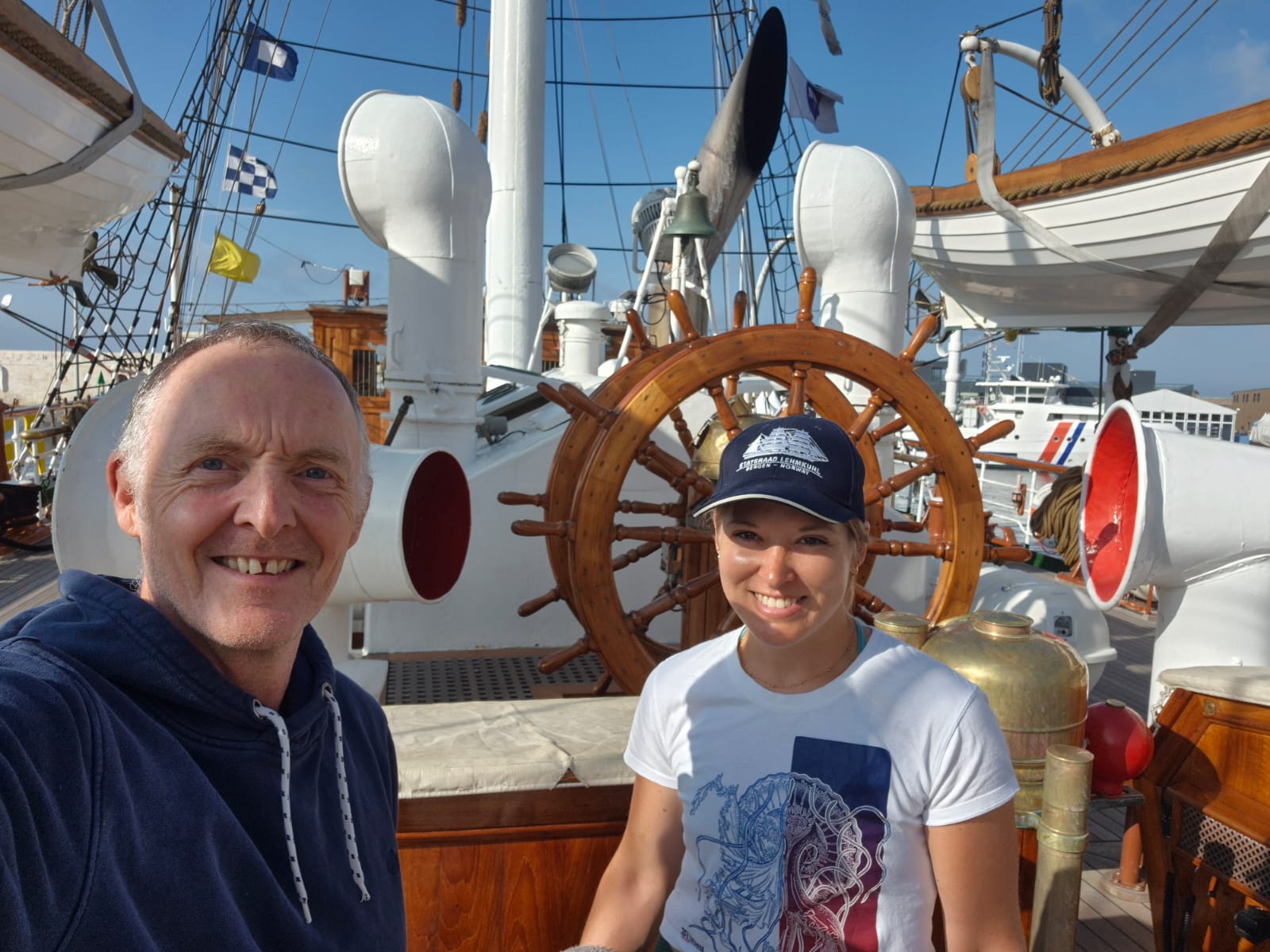
- The One Ocean Science Congress: A UNOC3 special event dedicated to science, taking place the week before UNOC itself… PML experts were driving inspiring and solutions-focused conversations, from issues ranging from mapping the deep ocean beyond border jurisdictions, to bridging chemical and biological changes to address and mitigate ocean acidification. The message was clear: science must underpin global efforts to protect and restore our Ocean. More about the One Ocean Science Congress here >>
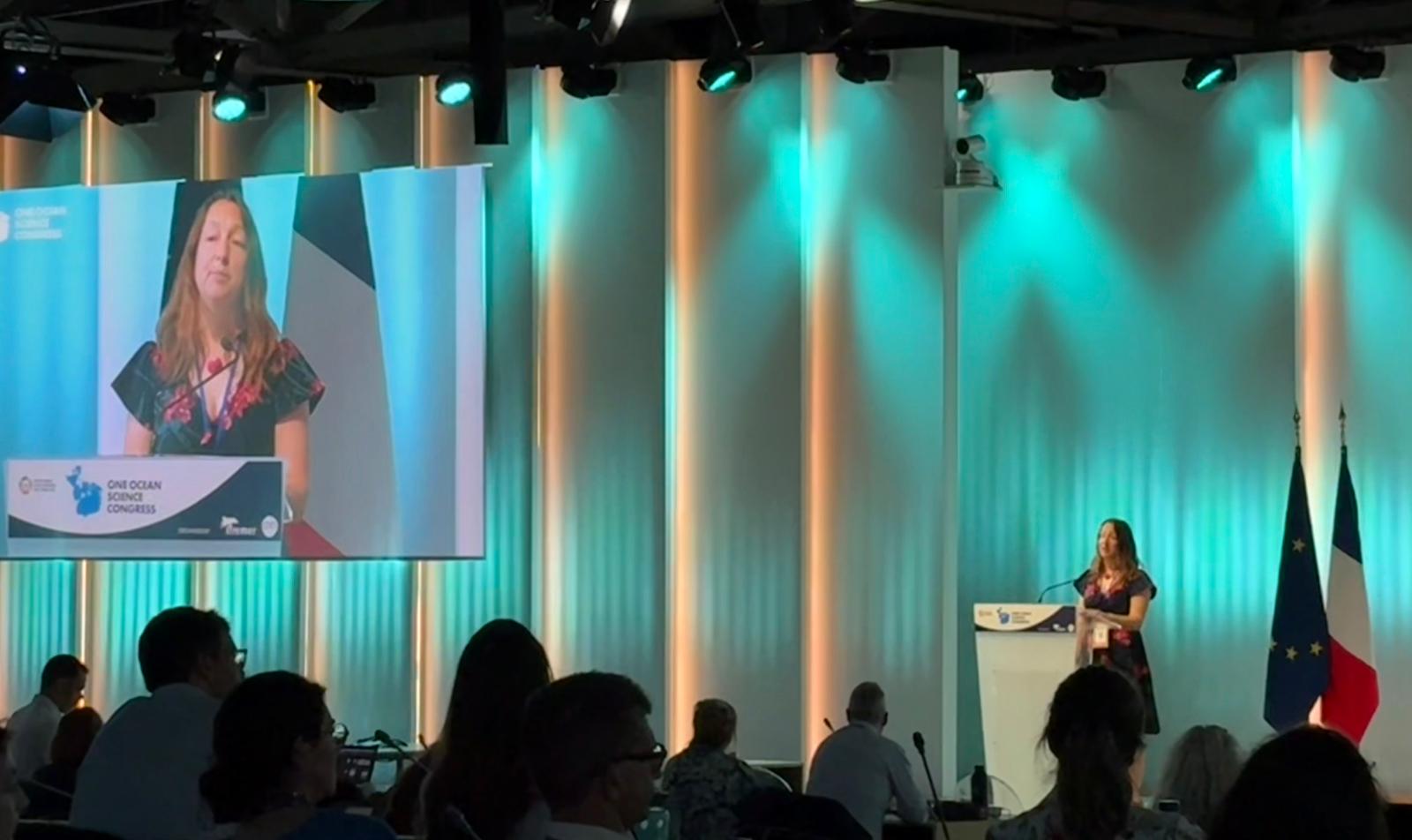
- Global attention on ocean acidification: On day one of UNOC, PML made global headlines with a landmark paper revealing that ocean acidification has already crossed its planetary boundary >>
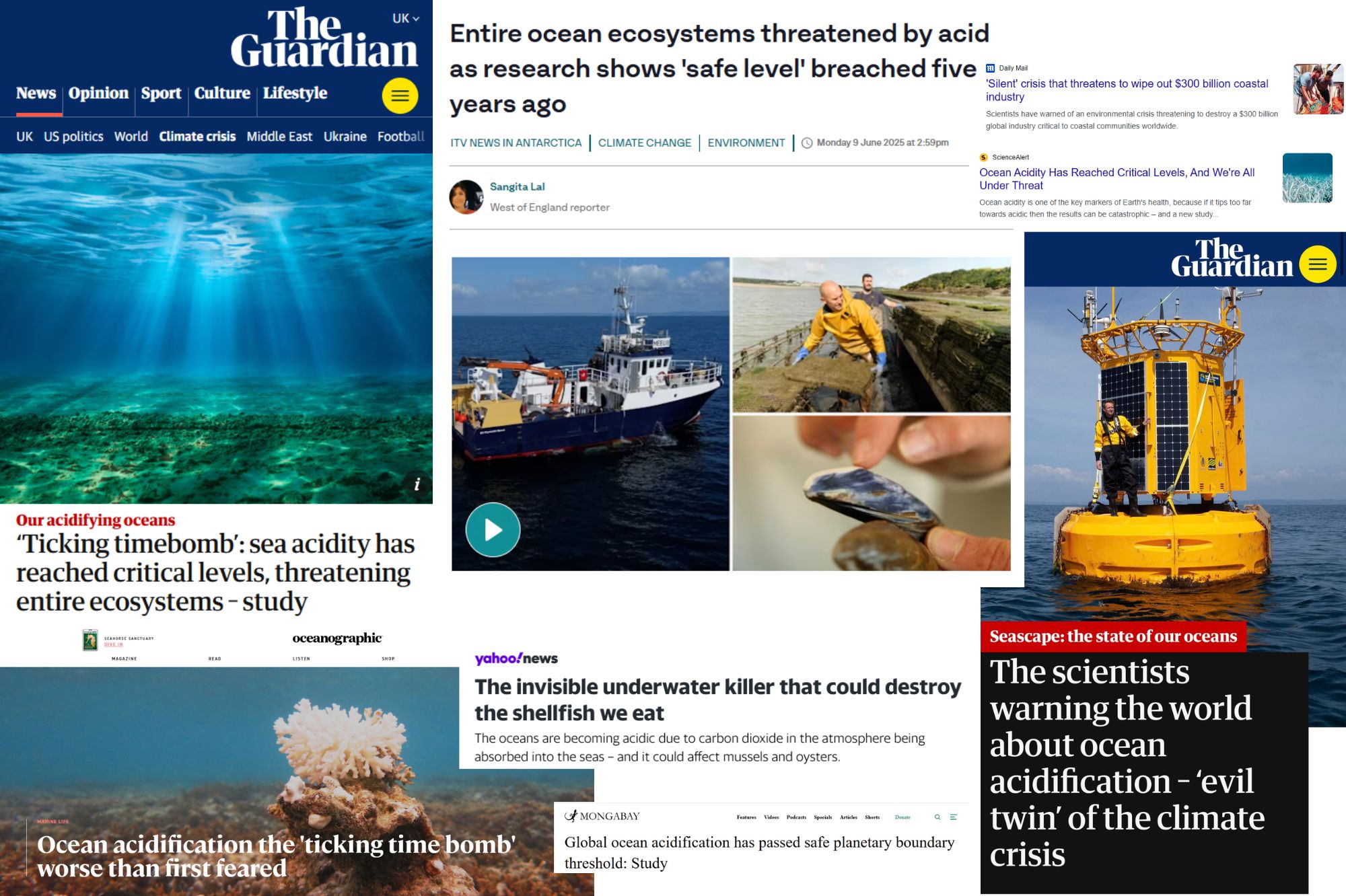
- “The Science we need for the Ocean we want” – driving forward the UN Ocean Decade: PML’s Professor Matt Frost (Head of the International Office and Chair of the UK National Decade Committee) chaired a session during the UN Ocean Decade Forum, one of the most popular events of the conference – with over 700 registered. The event focused on this crucial midway point of the Ocean Decade, reflecting on achievements and success stories, and charting the path ahead for an impactful Decade until 2030, and beyond. Prof Frost also championed the Decade during the UN Decade’s NDCs meeting onboard the RV Meteor
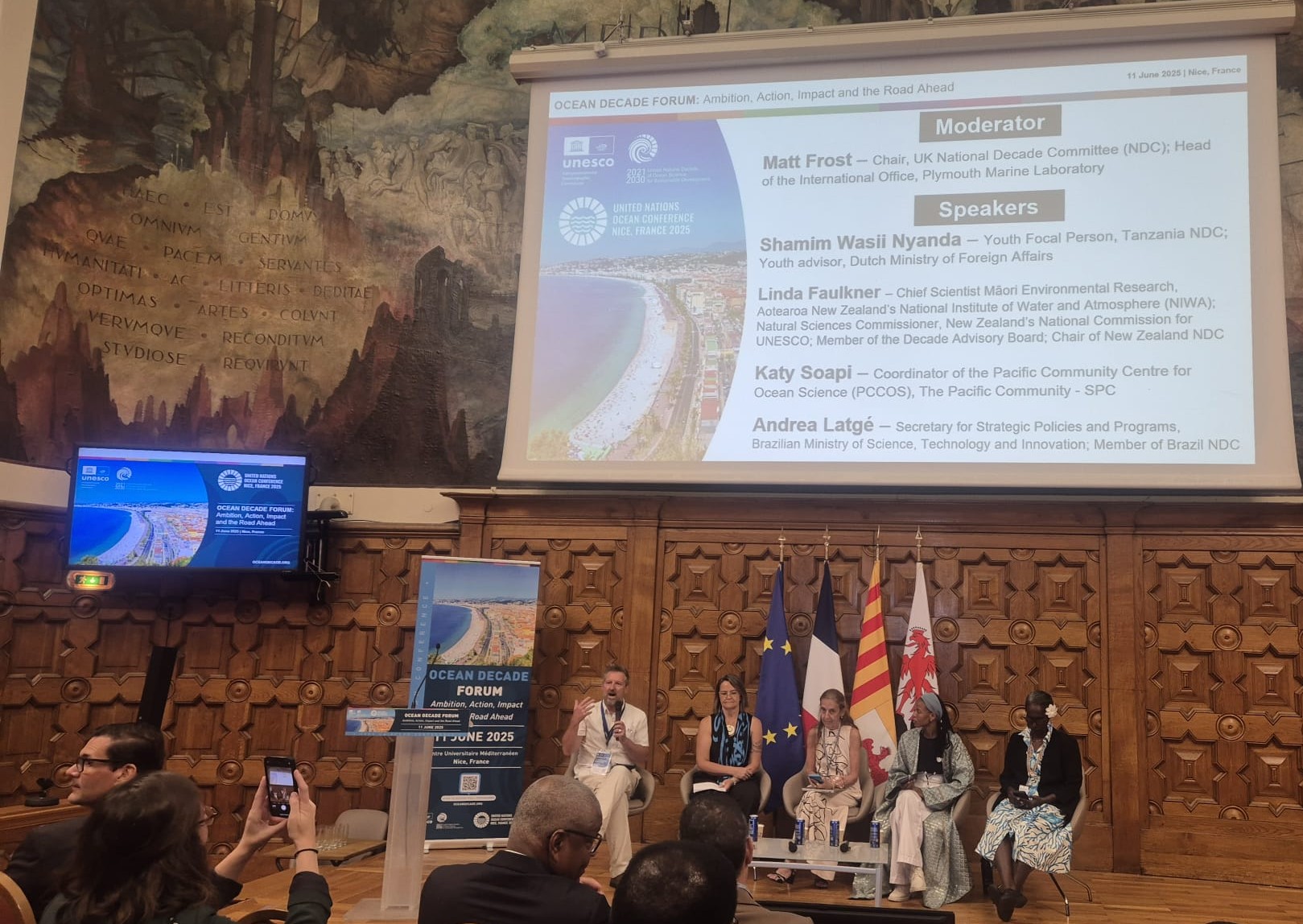
- Driving the BBNJ implementation conversation: PML’s Prof Matt Frost and Thecla Keizer were co-organisers of an international expert roundtable and official UNOC 3 side event focused on accelerating the ratification and implementation of the High Seas Treaty (BBNJ). A report on the roundtable has been finalised and will become available from the UNOC 3 website >>
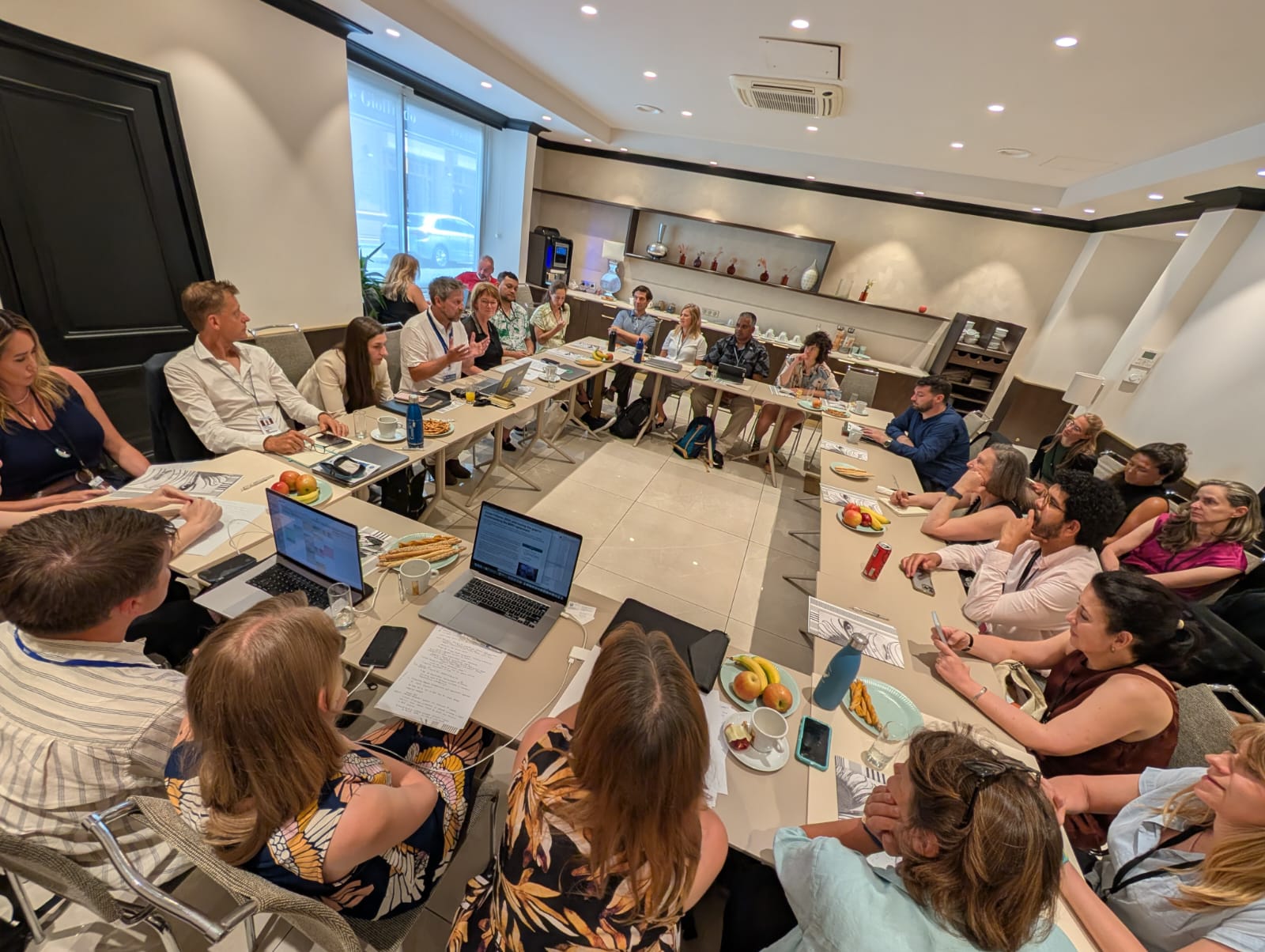
- Mapping deep-sea biodiversity: PML’s Prof Kerry Howell co-led “Challenger 150: Mapping Life in the Atlantic,” convening over 40 international researchers. The initiative aims to chart deep-sea ecosystems to inform conservation strategies and safeguard Vulnerable Marine Ecosystems (VMEs) >>
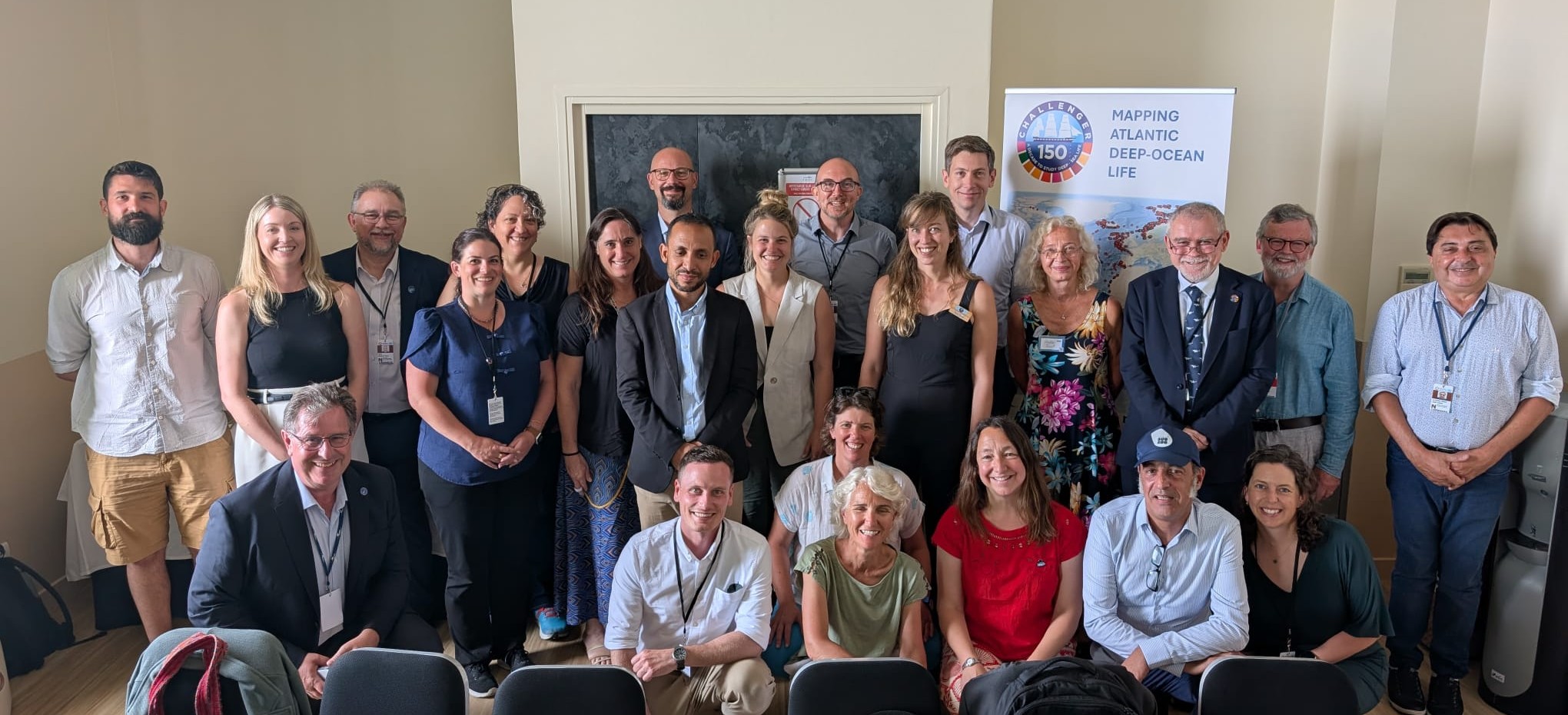
- Harnessing satellite tech for ocean monitoring: PML’s Dr Shubha Sathyendranath MBE and Dr Gemma Kulk led the side event “Harnessing Earth Observation Data…” showcasing how ESA satellite data reveals warming, sea-level shifts, ecosystem disruptions, and early-warning tipping points >>
- Reds for Blue: PML’s Prof Ana Queirós joined the ‘Reds for Blue’ AXA panel alongside Liverpool FC, Tara Oceans, and others. She unveiled ASPACE, PML’s AI tool designed to build climate-smart MPA networks that align ecological outcomes with community values.
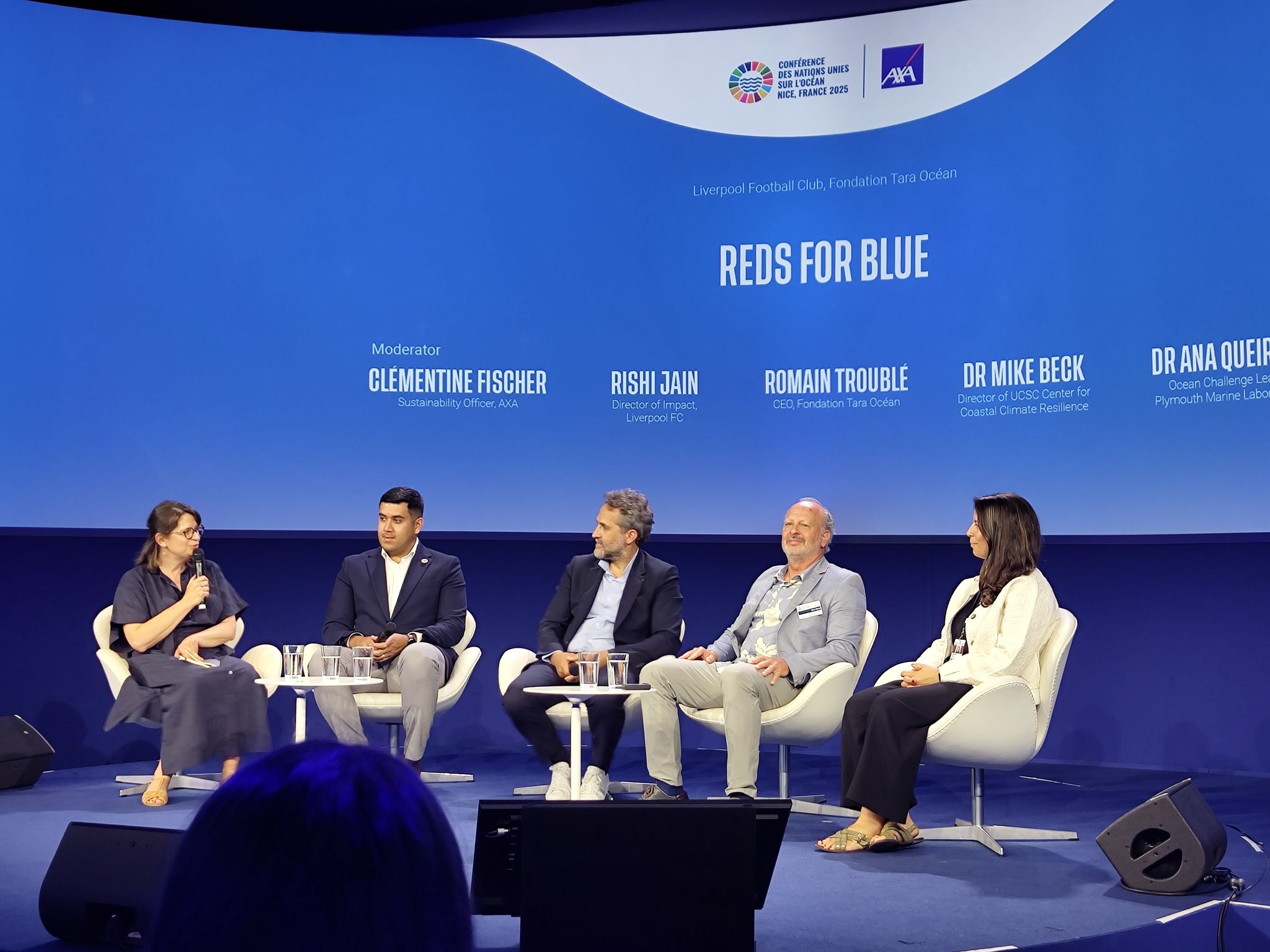
- Accelerating action on acidification: PML’s Amy Kenworthy (Project Manager of the Ocean Acidification Research for Sustainability Programme – OARS) spoke at the “Addressing and Minimising Ocean Acidification” event, bringing together global networks, IGO’s, NGOs, finance, and other sectors. This session took place just as PML’s Prof Helen Findlay’s Ocean acidification planetary boundary study was unveiled. Discover our further ocean acidification side events here >>
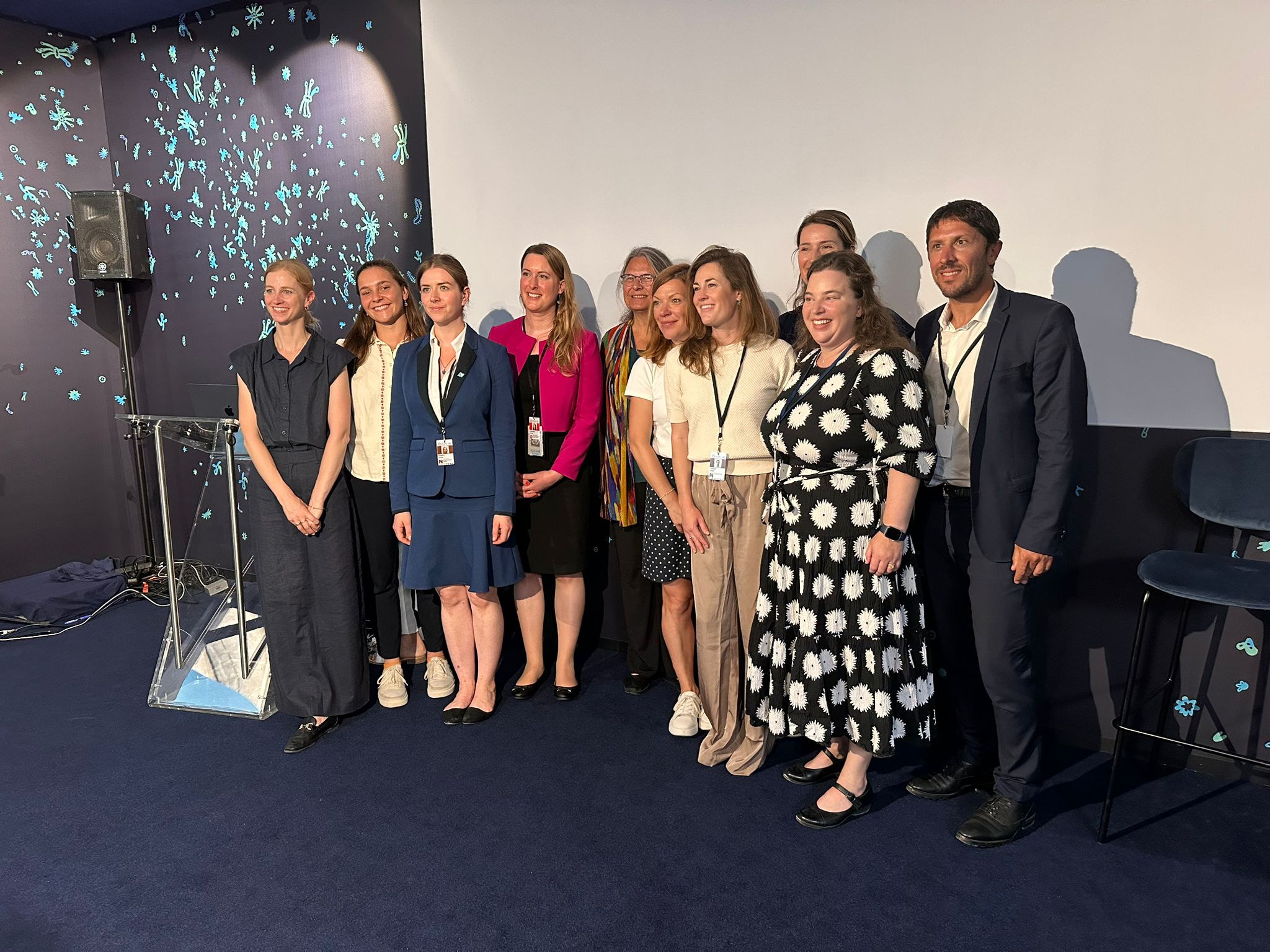
- Driving ‘Solutions-oriented research’: during the conference, PML’s Prof Widdicombe joined the German Marine Research Alliance’s (Deutsche Allianz Meeresforschung or DAM) roundtable on “Solution-oriented Marine Research,” resulting in key recommendations for decision-makers to support actionable, sustainable ocean solutions >>
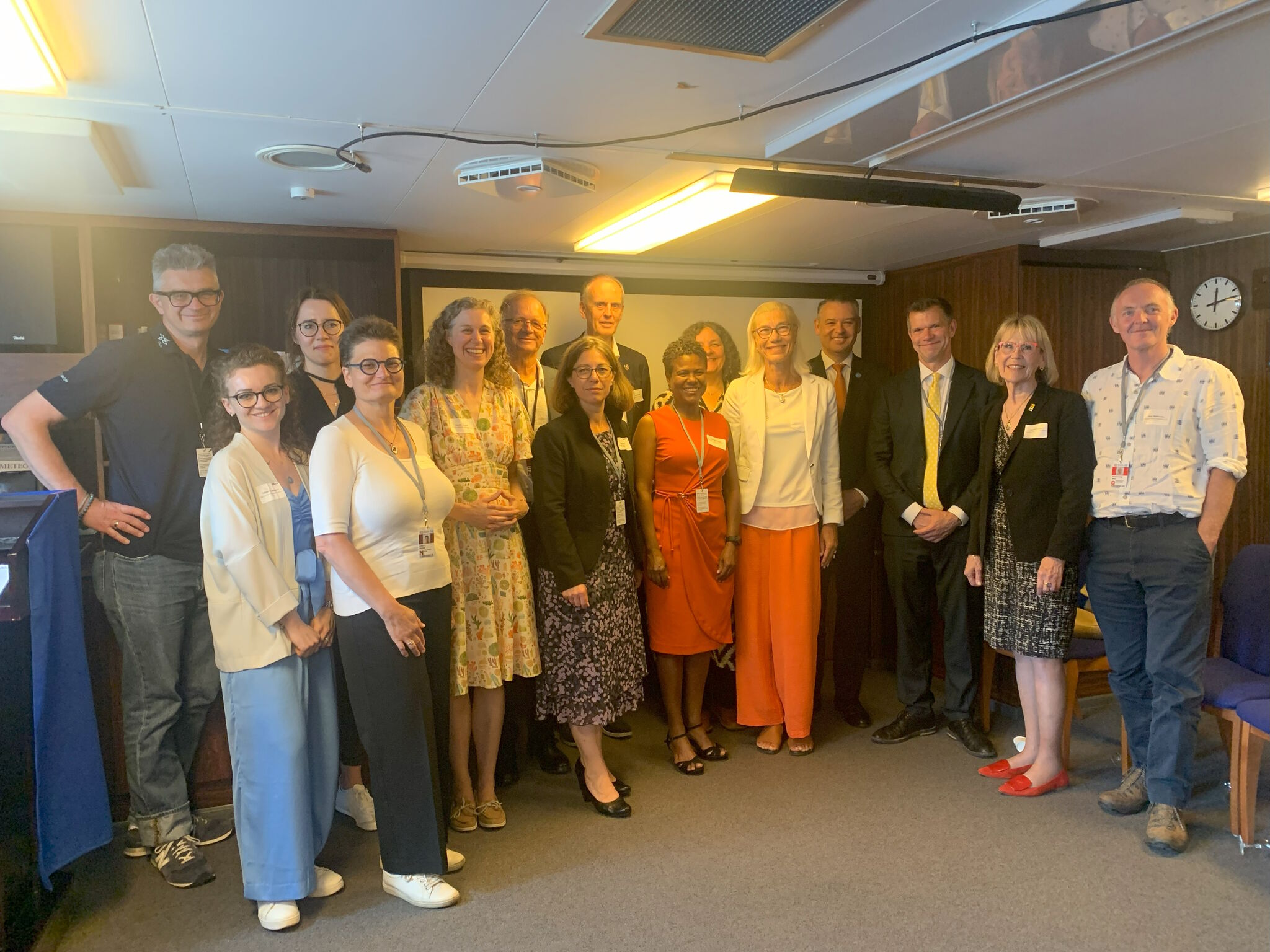
- Democratising global ocean & climate visibility: PML’s Prof Matthew Frost and Thecla Keizer launched the COP30 Virtual Ocean Pavilion – an open-access online platform mobilizing ocean stakeholders in climate dialogue. Find out more and register >>
- Championing blue carbon ecosystems: As part of the GO‑BC (Global Ocean–Blue Carbon) programme, PML joined a global call for greater commitment to protecting and restoring blue carbon habitats >>
- Discussing the complex, often contentious issues at the intersection of ocean health and climate action: PML’s Prof Matthew Frost joined the panel to address the difficult questions posed by today’s most pressing ocean-climate challenges, exploring collective, transformative change for a sustainable blue future.
- Joined leading organisations in calling for ‘Data for Ocean Action’: PML’s Chief Executive Professor Icarus Allen signed the POGO statement: ‘No Data, No Action: Investing in Ocean Observations to Achieve SDG14 and a Sustainable Future’, which was presented in the UNOC 3 closing plenary. PML is a Partnership for Observation of the Global Ocean (POGO) member and hosts its Secretariat.
The fourth UN Ocean Conference, in 2028, will be co-hosted by Chile and the Republic of Korea.
